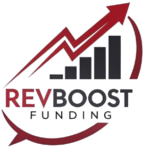If you want to stop the debt cycle caused by merchant cash advances, consider ethical alternatives like traditional business loans, SBA loans, asset-based loans, invoice factoring, business lines for credit, crowdfunding, and peer-to-peer lending. Each option offers flexibility and better terms for helping your cash flow without the pitfalls from advances. For instance, invoice factoring can quickly improve your cash flow, and crowdfunding can rally community support. Keep exploring these options for finding the best fit for your business needs.
Key Takeaways
- Consider traditional business loans for structured repayment and lower interest rates, ideal for expansion and equipment purchases.
- Explore SBA loans, which offer competitive rates and flexible funding options, benefiting small businesses with solid financial histories.
- Utilize asset-based loans to leverage existing assets for quick financing, often with better rates than alternatives for those with poor credit.
- Improve cash flow through invoice factoring, allowing immediate access to funds by selling outstanding invoices while mitigating payment risks.
- Seek business lines of credit for flexible financing, only paying interest on borrowed amounts to manage day-to-day expenses effectively.
Traditional Business Loans
When you're considering financing options for your enterprise, traditional business loans often stand out as a dependable choice. These term loans offer clear repayment conditions, typically ranging from one to twenty-five years. You'll find that interest rates differ, with average rates between 6.42% to 12.41%, influenced by factors like your business's financial health and the type of lender. Secured loans usually come with lower interest rates, as they require collateral, such as business assets. Be mindful regarding eligibility and requirements; good credit and cash flow often help you obtain better terms. This framework guarantees you have the funds necessary for growth, whether it's for expansion, equipment purchases, or managing working capital needs. Many growth-stage businesses also leverage loans for flourishing businesses to fuel their expansion plans and achieve long-term success.
SBA Loans
SBA loans represent a strong financing option for small businesses looking to secure affordable capital. These loans are designed to help you meet your business needs while offering competitive interest rates starting around 6%. To qualify, you'll typically need a credit score in the 600s and a solid financial history. The application process involves demonstrating your business's financial health and a clear need for the funds. Some loans may require collateral, especially for amounts over $350,000. With various SBA funding options available, including microloans and real estate funding, it is crucial to investigate which aligns with your goals. Utilizing an SBA loan can provide the stability and growth potential your business deserves without falling into a debt cycle. Additionally, exploring smart financing solutions can help you make an informed decision about the best financing options for your business.
Asset-Based Loans
Asset-based loans can be a smart choice if you have meaningful assets to use as collateral. Such a type of financing not only assists businesses with lower credit scores but also provides a flexible way to access capital reliant upon your asset's worth. By understanding the collateral requirements, you can utilize your inventory or receivables to secure funding that meets your needs.
Collateral Requirements Explained
Understanding collateral requirements is crucial for anyone contemplating an asset-based loan. These loans typically necessitate assets to secure the funding. Common collateral types include accounts receivable, inventory, machinery, and real estate. Lenders often calculate the loan amount through a borrowing base calculation, using a loan-to-value (LTV) ratio that varies by asset type.
Here's a quick overview:
| Collateral Type | LTV Ratio | Risks and Considerations |
|---|---|---|
| Accounts Receivable | Up to 80% | Risk of non-collectible receivables |
| Inventory | Up to 50% | Potential obsolescence |
| Machinery & Equipment | Up to 70% | Depreciation impacts |
| Real Estate | Up to 60% | Market fluctuations |
| Intellectual Property | Up to 30% | Valuation difficulties |
It's important to factor in the risks and additional considerations before proceeding.
Advantages for Bad Credit
For small business proprietors with poor credit, finding dependable financing options can feel overwhelming. Asset-based loans present several advantages in such a situation. They offer swift funding access, allowing you to secure capital rapidly—in just a few days—so you don't interrupt your operations. These loans also provide flexible repayment terms, accommodating your business's cash flow needs. Despite poor credit, you'll often find competitive interest rates, making them far more affordable than high-interest alternatives like merchant cash advances. Lenders focus on the value of your assets rather than your credit score, ensuring accessible capital for your business. This approach reduces the risk for lenders, allowing you to access necessary funding solutions with greater ease.
Invoice Factoring
Invoice factoring is an effective financing tool that can greatly improve your business's cash flow. By selling your outstanding invoices to reliable lenders, you gain access to immediate funds, allowing you to cover daily expenses, payroll, and growth investments without waiting for customer payments. This alternative financing strategy enables you to respond swiftly to market fluctuations and seize new opportunities when they arise. With factoring, you also reduce financial stress; the factoring company takes on the risk of non-payment, freeing you from chasing overdue invoices. Additionally, it's available to businesses in various industries, often requiring minimal documentation. Embracing invoice factoring can enhance your liquidity and guarantee a more predictable cash flow for your operations.
Business Lines of Credit
A business line of credit offers a flexible financing option that can significantly improve your cash flow management. This solution works similarly to a credit card, letting you draw funds as needed, ensuring you only pay interest for the amount borrowed. Responsible borrowing practices are crucial, especially when considering secured lines of credit, which often come with better terms. You'll find that a business line of credit can cater to various financial needs, from managing day-to-day expenses to handling unexpected costs. With eligibility typically requiring a solid credit score and consistent revenue, this option can be both accessible and effective, leading to improved business cash flow while avoiding the pitfalls associated with merchant cash advances.
Crowdfunding
Crowdfunding offers you a range of funding options that can help your business thrive. By engaging your community, you not only gather financial support but also build a loyal customer base that believes in your vision. Nevertheless, be prepared to invest time in marketing your campaign effectively in order to stand out in a crowded space.
Diverse Funding Options
When investigating diverse funding options, you might find crowdfunding an appealing substitute for traditional financing methods. This approach allows you to raise money directly from the public through platforms like Kickstarter or Indiegogo. It's an excellent option for those seeking alternatives to merchant cash advances, as it can provide quick access to funds without the burdensome debt. Crowdfunding often requires minimal documentation compared to a business loan, and it alleviates worries about repayment terms. Furthermore, you can examine peer-to-peer lending or revenue-based financing, both of which offer flexibility. Don't forget small business grants, which can complement your crowdfunding efforts, making it a versatile strategy for securing needed capital.
Community Engagement Importance
Engaging your community is crucial for a successful crowdfunding campaign, as it not only builds trust but also cultivates a sense of belonging among your supporters. Through community engagement, you encourage transparent communication that keeps your backers feeling valued and informed about your project's progress. This trust can lead to exceeding your funding goals and encourages investors to provide venture capital. Furthermore, gathering feedback from the community can enhance your ideas and strengthen your strategy, making your campaign more appealing. As you maintain these connections, you create long-term relationships, turning supporters into ambassadors for your project. This sustained support can prove indispensable, not just during your campaign, but beyond it as well.
Marketing Strategies Required
Effective marketing strategies are essential for the success of your crowdfunding campaign, as they help you reach your target audience and generate interest in your project. To effectively promote your campaign, consider the following strategies:
- Leverage social media to create buzz and engage potential backers with updates and interactive content.
- Target journalists and influencers through tailored email outreach, avoiding generic formats to improve your response rates.
- Utilize guest blogging and seek media coverage to establish credibility and expand your reach.
- Attend events and provide product demos to showcase your offering while collecting potential leads.
With these approaches, you can secure funding options and promote transparent terms while ensuring companies compare interest rates for low interest financing.
Peer-to-Peer Lending
Have you considered the benefits from peer-to-peer (P2P) lending as an alternative for merchant cash advances? P2P lending connects you directly with investors through online platforms. This process allows for quicker access to funding amounts that might otherwise be challenging to secure. With higher approval rates compared to traditional banks, you can find flexible options suited to your needs, even if you have less-than-perfect credit. The simple application process optimizes everything, making it easy to apply and get matched with potential lenders. By exploring P2P lending, you can effectively secure funding and take control of your financial future without falling into the debt cycle often associated with MCAs. Additionally, P2P lending offers a non-dilutive funding option, which means you won't have to sacrifice equity or ownership in your business.
Frequently Asked Questions
How Can I Choose the Best Alternative Funding Option for My Business?
In choosing the best alternative funding option for your business, evaluate your needs, compare interest rates and terms, consider flexibility, assess eligibility criteria, and factor in speed for funding in order to make an informed decision.
What Are the Hidden Fees Associated With These Alternatives?
When exploring funding alternatives, watch for hidden fees like origination charges, late payment penalties, and maintenance fees. Understanding these costs guarantees you choose a financing option that truly fits your business needs and budget.
Can I Qualify for Alternatives With Bad Credit?
Yes, you can qualify for alternatives with bad credit! Many lenders consider your business performance instead just credit score, offering options like asset-based loans or invoice factoring even if your credit isn't great.
How Long Does the Application Process Typically Take?
The application process typically takes 24 for 48 hours for initial approval, depending upon the lender. After that, funding can occur quickly, often within a week, if you provide all required documentation promptly.
Are There Specific Industries That Benefit Most From These Alternatives?
Yes, specific industries like restaurants, retail shops, and e-commerce benefit most from alternatives. They often need flexible funding and improved cash flow management, allowing for better operations during seasonal fluctuations or unexpected expenses.

